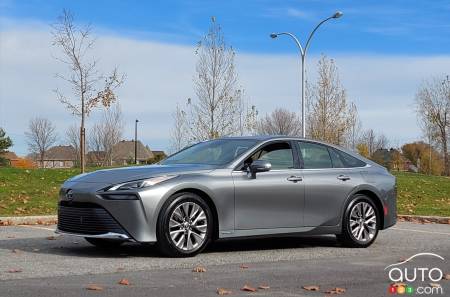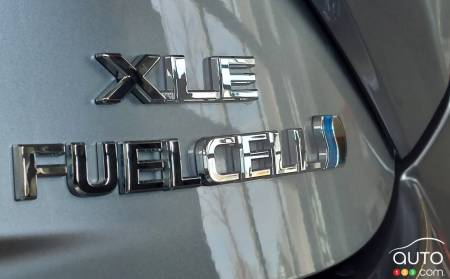At a round-table meeting organized today by BMW and Toyota, we learned that the two automakers are stepping up their collaboration in the field of hydrogen-powered vehicles. They intend to jointly develop the next generation of fuel cell technology, which will equip BMW's first hydrogen-powered production vehicle scheduled for 2028. This strategic partnership aims to accelerate innovation and make hydrogen mobility more accessible.
BMW has confirmed that its first hydrogen-powered production model will be integrated into the existing range, offering consumers a new powertrain variant.
BMW continues to test its iX5 Hydrogen across some 20 global markets and a million kilometers to validate the technology's durability and efficiency under different environmental and operational conditions. The German automaker is alone among big European manufacturers currently active in developing hydrogen-based technologies. Toyota of course is one of the only carmakers to actually have a hydrogen model on the road, with its Mirai. Both automakers today stressed that their respective models will “maintain their distinct brand identities and characteristics.”

The importance of infrastructure
Recognizing the importance of supporting a hydrogen-refueling infrastructure, BMW and Toyota are also working to encourage the development of hydrogen distribution networks. This includes working with industry partners to establish standards and practices that will facilitate the large-scale deployment of hydrogen as an alternative fuel.
Both carmakers say they want to promote hydrogen not only as a credible technological alternative, but also as a complementary solution to battery electric vehicles, particularly in regions where the deployment of electric charging infrastructure may be difficult.
Hydrogen offers key advantages, not least its ability to store renewable energy. By joining forces with other industry players and governments, the two companies aim to accelerate the development of a hydrogen-based economy, making this technology more accessible and affordable for consumers and businesses alike.






